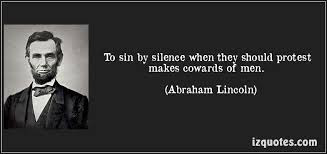Three cheers for John Cassidy
The Physics of Finance 2013-06-25
Hurray for John Cassidy in being gutsy enough to write clearly about the Edward Snowden situation, as well as the broad and gutless media acquiescence to the "government line," few questions asked. First, some balance from an interview in the Australian media with Thomas Drake, another former NSA employee charged with espionage (felony charges were ultimately dropped):
Cassidy goes on to examine some of the cultural reasons leading almost all US news figures to pretty much toe the government line and to heap slander on Snowden. It's not pretty:INTERVIEWER: Not everybody thinks Edward Snowden did the right thing. I presume you do… DRAKE: I consider Edward Snowden as a whistle-blower. I know some have called him a hero, some have called him a traitor. I focus on what he disclosed. I don’t focus on him as a person. He had a belief that what he was exposed to—U.S. actions in secret—were violating human rights and privacy on a very, very large scale, far beyond anything that had been admitted to date by the government. In the public interest, he made that available. INTERVIEWER: What do you say to the argument, advanced by those with the opposite viewpoint to you, especially in the U.S. Congress and the White House, that Edward Snowden is a traitor who made a narcissistic decision that he personally had a right to decide what public information should be in the public domain? DRAKE: That’s a government meme, a government cover—that’s a government story. The government is desperate to not deal with the actual exposures, the content of the disclosures. Because they do reveal a vast, systemic, institutionalized, industrial-scale Leviathan surveillance state that has clearly gone far beyond the original mandate to deal with terrorism—far beyond.As far as I’m concerned, that about covers it. I wish Snowden had followed Drake’s example and remained on U.S. soil to fight the charges against him. But I can’t condemn him for seeking refuge in a country that doesn’t have an extradition treaty with the United States. If he’d stayed here, he would almost certainly be in custody, with every prospect of staying in a cell until 2043 or later. The Obama Administration doesn’t want him to come home and contribute to the national-security-versus-liberty debate that the President says is necessary. It wants to lock him up for a long time.
Snowden took classified documents from his employer, which surely broke the law. But his real crime was confirming that the intelligence agencies, despite their strenuous public denials, have been accumulating vast amounts of personal data from the American public. The puzzle is why so many media commentators continue to toe the official line. About the best explanation I’ve seen came from Josh Marshall, the founder of T.P.M., who has been one of Snowden’s critics. In a post that followed the first wave of stories, Marshall wrote, “At the end of the day, for all its faults, the U.S. military is the armed force of a political community I identify with and a government I support. I’m not a bystander to it. I’m implicated in what it does and I feel I have a responsibility and a right to a say, albeit just a minuscule one, in what it does.” I suspect that many Washington journalists, especially the types who go on Sunday talk shows, feel the way Marshall does, but perhaps don’t have his level of self-awareness. It’s not just a matter of defending the Obama Administration, although there’s probably a bit of that. It’s something deeper, which has to do with attitudes toward authority. Proud of their craft and good at what they do, successful journalists like to think of themselves as fiercely independent. But, at the same time, they are part of the media and political establishment that stands accused of ignoring, or failing to pick up on, an intelligence outrage that’s been going on for years. It’s not surprising that some of them share Marshall’s view of Snowden as “some young guy I’ve never heard of before who espouses a political philosophy I don’t agree with and is now seeking refuge abroad for breaking the law.” Mea culpa. Having spent almost eighteen years at The New Yorker, I’m arguably just as much a part of the media establishment as David Gregory and his guests. In this case, though, I’m with Snowden—not only for the reasons that Drake enumerated but also because of an old-fashioned and maybe naïve inkling that journalists are meant to stick up for the underdog and irritate the powerful. On its side, the Obama Administration has the courts, the intelligence services, Congress, the diplomatic service, much of the media, and most of the American public. Snowden’s got Greenwald, a woman from Wikileaks, and a dodgy travel document from Ecuador. Which side are you on?
